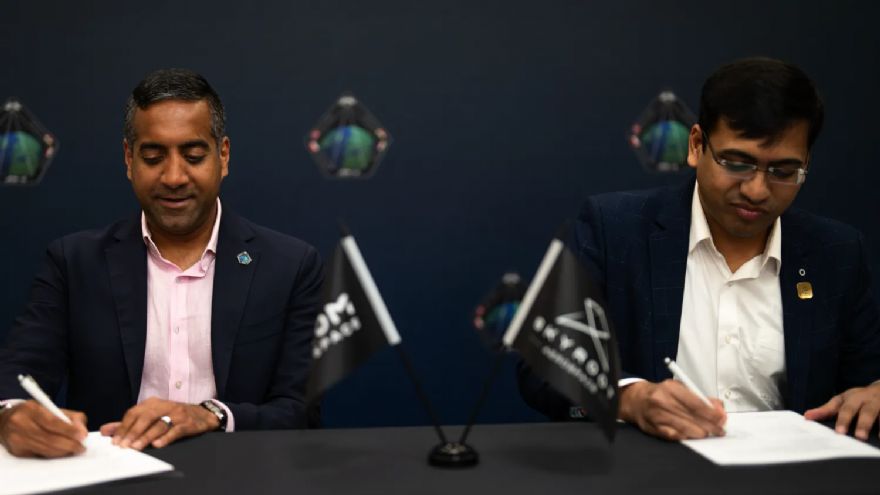
US-based
Axiom Space has signed a Memorandum of Understanding (MoU) with India-based
Skyroot Aerospace to explore collaboration opportunities to advance space exploration and access to low-Earth orbit (LEO). This collaboration further reinforces the growing cooperation between Axiom Space and the Indian space sector. Axiom Mission 4 (Ax-4), which launched on 25 June, marks India’s return to human spaceflight and the nation’s first mission on board the International Space Station (ISS).
With Ax-4, Axiom Space is laying the foundation for the construction and operation of Axiom Station, marking the company as a leader in LEO. The company is developing a diverse and global supply chain, and is strategically partnering with pioneering organisations such as Skyroot Aerospace to achieve this goal.
Skyroot Aerospace is India’s leading private space launch service provider and the first private company to launch a rocket to space in South Asia. As the first private space-tech company to partner with the
Indian Space Research Organisation (ISRO), Skyroot is on a mission to make access to space affordable, reliable, and on demand. In 2022, Skyroot successfully launched Vikram-S, and the team is now preparing to launch the Vikram-1 rocket, its maiden orbital-class launch vehicle.
Pawan Kumar Chandana, co-founder and CEO of Skyroot Aerospace, said: “Enabling greater and equitable access to space, be it for research institutes, start-ups, or national agencies, is the guiding mantra at Skyroot. As we begin realising this vision with the upcoming maiden launch of Vikram-1, the partnership with Axiom Space builds an opportunity to explore integrated launch and orbital solutions that will shape humanity’s future in space.”
Axiom Space’s CEO Tejpaul Bhatia said: “Since the day I visited Skyroot’s facility two years ago, I knew our companies had to work together to define humanity’s future in space. With our shared vision to transform access to space, we look forward to collaborating with Skyroot to serve the growing space ecosystem in India and globally.”